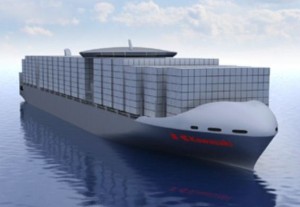NLNG Train 7 to attract N1.89tn FDI
Nigeria will attract fresh Foreign Direct Investment worth $12bn (N1.89tn) within the next four years through the proposed Train 7 of the Nigeria Liquefied Natural Gas project.
The project is also expected to generate additional $3bn revenue for the Federal Government annually and create about 13,000 new jobs.
These figures were presented to the Minister of Trade and Investment, Mr. Olusegun Aganga, by the Managing Director, NLNG, Mr. Babs Omotowa, during the minister’s one-day facility tour of the NLNG plant in Bonny Island, Rivers State, on Monday.
The minister also inaugurated the multi-million naira Finima Women Bakery built and donated to the community by the NLNG, as part of its corporate social responsibility.
“We are expecting Foreign Direct Investment of $12bn from our proposed Train 7 plant, which we hope will be completed within the next four years. The project is expected to create 13,000 new jobs and generate $3bn revenue annually for the government,” Omotowa said.
The NLNG Limited is jointly owned by the Nigerian National Petroleum Corporation (49 per cent); Shell (26.6 per cent); Total LNG Nigeria Limited (15 per cent) and Eni (10.4 per cent).
Aganga described the NLNG project as a big success story for Nigeria, stressing that the Ministry of Trade and Investment was committed to providing the enabling environment to encourage the inflow of FDI into the country.
He said, “NLNG is one of the biggest success stories in our country. From what the managing director told me, the company has invested $13bn so far since inception and has become a pacesetter in terms of revenue generation for the government, profitability, dividend payment to shareholders, job creation and adherence to international best practices in its operations.
“The purpose of my visit today is to assess the key areas that we want to diversify and increase our export base. Also, we are looking for gas to help us develop the petrochemical sector of the economy, which is critical because we cannot have a strong and virile industrial sector without a strong petrochemical sector, which will support the growth and development of the automobile, textile, plastic, chemical and pharmaceutical industries.”
Source: News Agency of Nigeria
LNG Cargo Ship









